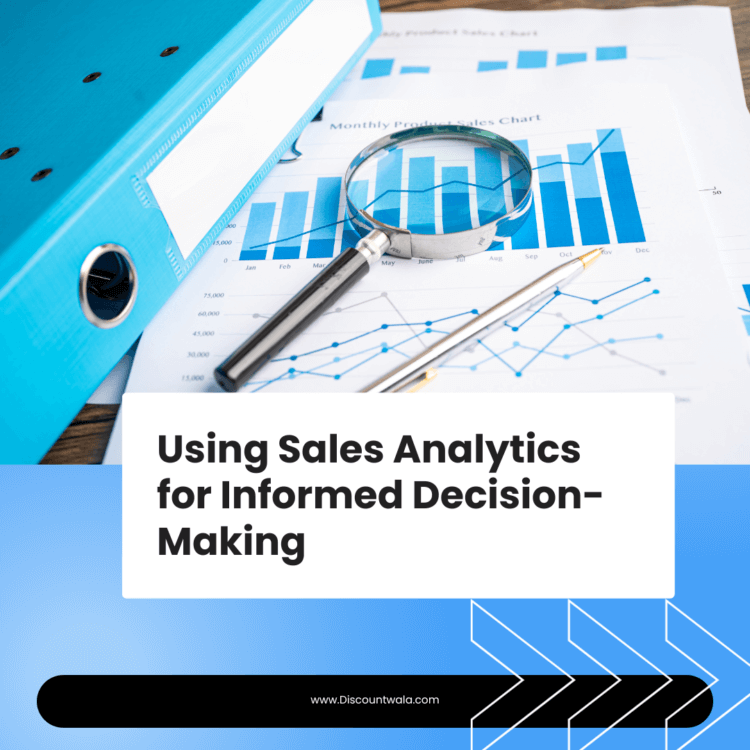In the fast-paced world of sales, making informed decisions is a game-changer. As technology continues to evolve, businesses have access to a wealth of data that can be harnessed to optimize strategies, enhance performance, and drive success. In this blog, we explore the transformative role of sales analytics in empowering decision-makers with valuable insights.
Understanding Sales Analytics:
Sales analytics involves the systematic analysis of sales data to uncover patterns, trends, and insights that can inform decision-making. It encompasses a range of metrics, including sales performance, customer behavior, and market trends. By leveraging advanced analytics tools, businesses can turn raw data into actionable intelligence.
Optimizing Sales Performance:
Sales analytics provides a comprehensive view of individual and team performance. Metrics such as conversion rates, lead generation effectiveness, and sales cycle duration offer valuable insights into areas of strength and areas that may need improvement. Armed with this information, sales leaders can tailor training programs, set realistic targets, and implement strategies to optimize performance.
Enhancing Customer Relationship Management (CRM):
A robust CRM system, combined with sales analytics, is a powerful tool for customer engagement. By analyzing customer interactions and purchase histories, businesses can identify upsell and cross-sell opportunities, personalize communication strategies, and anticipate customer needs. This leads to stronger relationships, increased customer loyalty, and higher retention rates.
Identifying High-Value Leads:
Not all leads are created equal, and sales analytics helps in distinguishing between high-value and low-value prospects. By analyzing historical data, businesses can identify patterns associated with successful conversions. This allows sales teams to focus their efforts on leads with the highest likelihood of conversion, optimizing resource allocation and increasing the overall efficiency of the sales process.
Predictive Analytics for Forecasting:
Sales forecasting is a critical aspect of strategic planning. Predictive analytics uses historical data, market trends, and other relevant variables to forecast future sales performance accurately. This foresight enables businesses to anticipate demand, allocate resources effectively, and adjust strategies in real-time to align with market dynamics.
Measuring Marketing Effectiveness:
Sales and marketing go hand in hand, and sales analytics plays a pivotal role in measuring the effectiveness of marketing campaigns. By analyzing data on lead acquisition, customer engagement, and conversion rates, businesses can gauge the return on investment (ROI) of marketing initiatives. This insight allows for the refinement of marketing strategies to maximize impact and efficiency.
Adapting to Market Trends:
The business landscape is constantly evolving, and staying ahead requires a keen awareness of market trends. Sales analytics enables businesses to monitor shifts in customer behavior, preferences, and competitive landscapes. Armed with this knowledge, decision-makers can proactively adapt sales strategies to capitalize on emerging opportunities and mitigate potential threats.
Continuous Improvement through Feedback Loops:
Sales analytics fosters a culture of continuous improvement. By regularly analyzing performance metrics and customer feedback, businesses can create feedback loops that drive iterative enhancements. This approach ensures that strategies remain agile, responsive, and aligned with the ever-changing dynamics of the market.
Conclusion:
In the era of data-driven decision-making, sales analytics is the linchpin that transforms information into actionable insights. By optimizing sales performance, enhancing CRM, identifying high-value leads, leveraging predictive analytics, measuring marketing effectiveness, adapting to market trends, and fostering continuous improvement, businesses can harness the full potential of sales analytics to drive success and achieve sustainable growth. Embrace the power of data, and let informed decisions propel your sales strategy into the future.










No Comments
Leave Comment